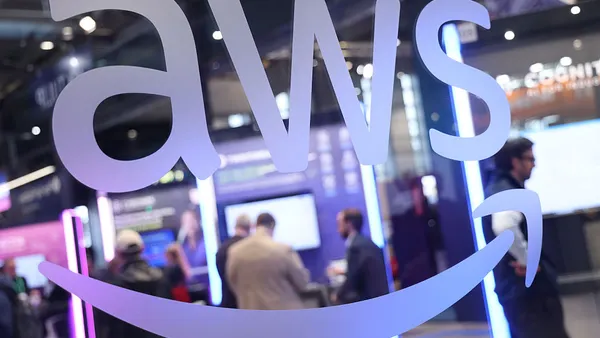Dive Brief:
- Google reaped the rewards of rising enterprise AI services demand during the third quarter, reaching $102 billion in revenues during the period ending Sept. 30, executives said during an earnings call Wednesday.
- Cloud revenues soared in Q3 for the hyperscaler, growing 34% year over year to $15.2 billion. Google's cloud unit sustained profitability and brought in $3.59 billion.
- "Our complete enterprise AI product portfolio is accelerating growth in revenue, operating margins and backlog" for Google Cloud, said CEO Sundar Pichai during the earnings call. The company is signing customers faster, with larger deals and expanding the use of AI services among more Google Cloud customers, Pichai said.
Dive Insight:
In the hyperscaler tussle over enterprise dollars, Google has long been a steady third in a race led by AWS and Microsoft. AI services have accelerated market growth, and Google has capitalized on the increased spending.
"We are seeing substantial demand for our AI infrastructure products, including TPU-based and GPU-based solutions," Pichai said during the call. "It is one of the key drivers of our growth over the past year, and on a going-forward basis, I think we [will] continue to see very strong demand, and we are investing to meet that."
The company increased its projected capital expenditures for a second time this year to $93 billion, up from the $75 billion announced at the start of the year, in a push to increase compute capacity. In Q2 the company added another $10 billion to its forecast, to reach $85 billion.
"The vast majority of our CapEx was invested in technical infrastructure – with approximately 60% of that investment in servers and 40% in data centers and networking equipment," said Anat Ashkenazi, SVP and CFO.
AWS and Microsoft have also joined the investment blitz, lining up $100 billion and $80 billion respectively in capital expenditures — mostly geared at infrastructure expansions.
Craig Lowery, VP analyst at Gartner, said Google has been able to differentiate itself from the hyperscaler trio by taking a full-stack approach to AI services.
"The benefit of Google AI's set of capabilities is that Google owns that stack from top to bottom," said Lowery. "This gives some benefits around the controllability of it, the consistency of it, the intention for it to work together."
Earlier this month, the company launched its Gemini Enterprise hub in a push to centralize access to enterprise AI services. The platform put Gemini models, first- and third-party agents and what was formerly known as Agentspace behind a single "front-door," executives said.















